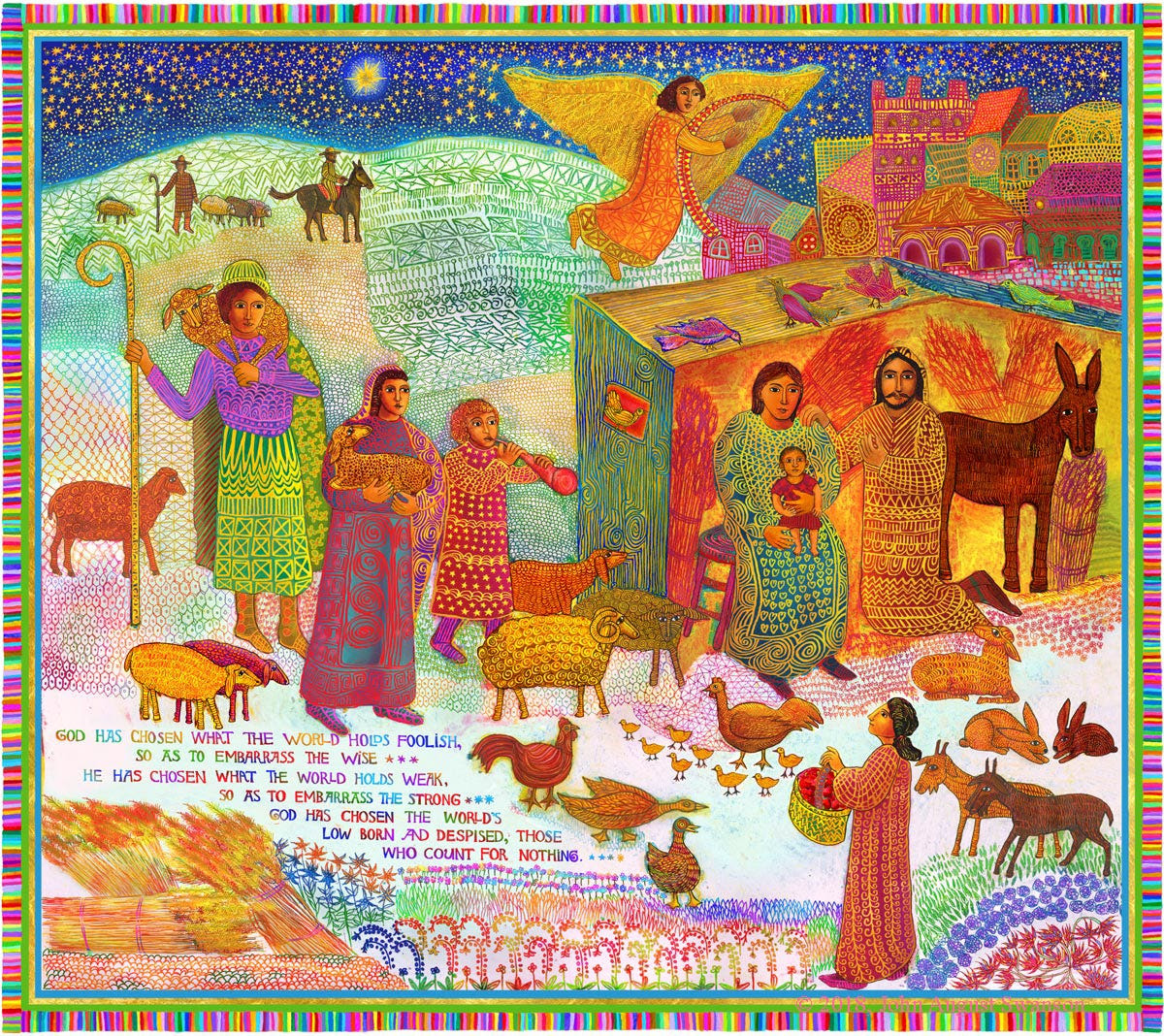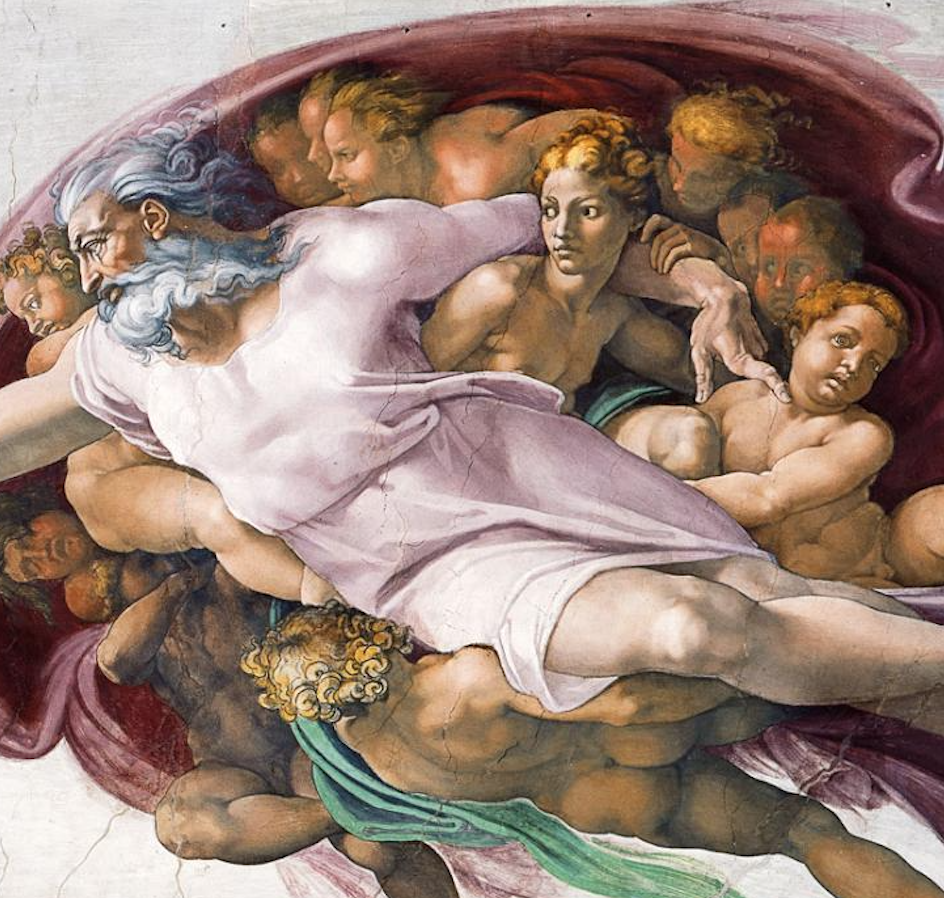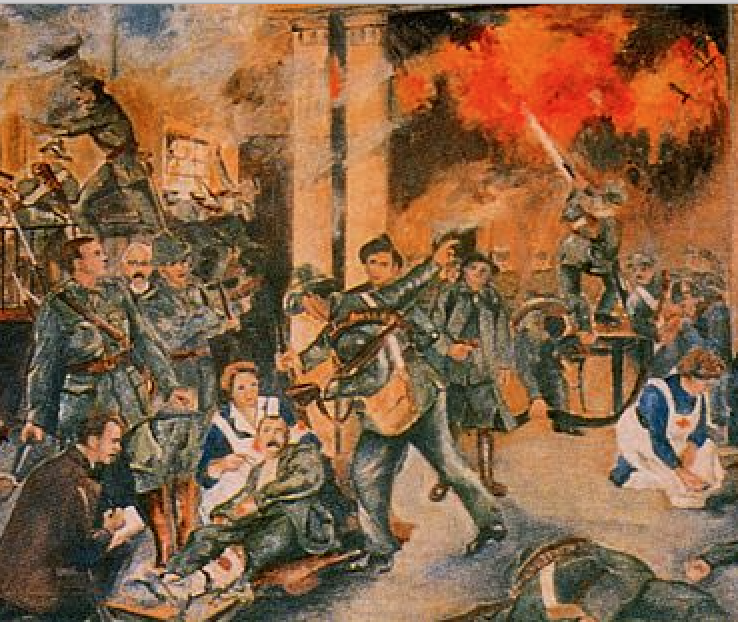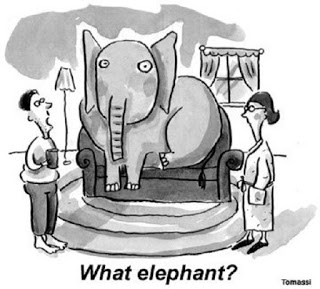The central focus of Jesus’ message was to announce the imminent coming of the kingdom of God. This is what he was sent to do. (Luke 4: 43-44) This kingdom would be on earth for the people of Israel. (Matthew 10: 5-8) Although Jesus gives few details on how this kingdom would operate.
If one searches the origin and history of Valentine’s Day, one finds clouds and legends mixed with a bit of history.
This week’s reading is a Sunday school children’s favorite — the story of Zacchaeus, a tax collector who climbs a tree to see Jesus.
What has always “tainted” mankind and kept people from living ethical, inclusive, and caring lives? The answer is what drives our contemporary enormous cultural divide: Bad choices often rooted in tribal-based anger and hatred.
Even as we consider all the facts, the basic story that emerges is quite simple. The disciples were re-born while they lived with Jesus, and his death neither deterred nor discouraged them. Instead, they turned to one another and embraced, fully aware in their hearts that he was not only still with them, but also that the newness he embodied embraced the universe. This was the bedrock of their faith and forms the foundation for the day we call Easter.
Jesus is, in fact, no longer the reason for the season. But the reason this is so extends far beyond the cultural and commercial contamination of a quaint old tale.
The Christmas story is one of comfort and sweetness, if you will allow me that word. But we must not become so enamored by the Silent Night that we miss the revolutionary impact of the imagery. God appears in the poor places on earth and not in the councils of the rich and powerful.
Wisdom is paying attention while refraining from the assumption that you understand everything about what you are observing. Indeed, in order to pay full attention, we must release our grasp on what we do know, so that we make room in our hearts and minds for further knowledge.
Some people are highly devotional because it is scary having one's paradigm shattered. This is to be exposed to the chaos of one’s own mind (the devil!). It is much easier to cling to the established artifacts of one’s own thinking then to fall into the pit of chaos. Most people would rather die than admit that the belief system/paradigm that they have carried most or all their life is wrong in spite of proof of error time and time again.
The framework of ancient virtue theory, with its emphasis on character and the life of each human being as a whole, also formed a backdrop for the Synoptic Gospels. It is against this background that the figure of Jesus can be analyzed as an exemplar of the ideal moral person.
I have never liked Luke 6:20, which says “Congratulations, you poor!” in newer translations. I think that’s demeaning.
But now that we’re halfway through the season of Lent, I think it’s the right time to talk about what is possibly the most important spiritual practice of all, the practice that makes all the others possible: the spiritual practice of letting something go. All the spiritual teachings in the world are not going to help us–even a personal invitation from the spiritual master himself is not going to help us–if we keep ourselves too busy to show up for him. Thanks for coming over, Martha says to Jesus this morning. But you know, I really don’t have time for this stuff!
Restoration of a Vision from the Christian Faith Tradition
What might constitute an adequate improvement to the world order? This commentary constitutes an exploration of this pesky, perennial question about "a better world" from the vantage point of one faith tradition, and in contemporary context. Its intention is not to offer novelty or any new revelatory insight, but rather to remember and restore a perspective that lies at the heart of a biblical gospel tradition; based on the teachings of a pre-Easter human Jesus.
In a late night session on February 7, 2017, during Jeff Session’s confirmation hearing for U.S. Attorney General, just weeks after the inauguration of President Donald Trump, the United States Senate voted to silence Senator Elizabeth Warren after she read comments made decades earlier by Edward Kennedy and Coretta Scott King that criticized the civil rights record of Senator Sessions. Warren was censured because Senate Rule XIX prohibits ascribing "to another senator or to other senators any conduct or motive unworthy or unbecoming a senator." To silence her, Senate Majority Leader Mitch McConnell led a party-line vote that forced Senator Warren to take her seat and refrain from speaking. McConnell later said “Senator Warren was giving a lengthy speech. She had appeared to violate the rule. She was warned. She was given an explanation. Nevertheless, she persisted.”
Did you ever read something in the Bible and wonder what you just read? So, you read it again. It still makes no sense. You try again. Nothing. Here’s an example from Matthew 21:18–19. Jesus arrived in Jerusalem and was hungry. He saw a fig tree, but he went to it, he found no fruit, only leaves. Jesus said to the tree, “May no fruit ever come from you again!” And the tree “withered at once.” Huh?
And [Jesus] said to them, ‘Take care! Be on your guard against all kinds of greed; for one’s life does not consist
Progressive thinkers cannot avail ourselves of the false security fundamentalist believers bring to church Sundays and to the Bible daily. We can, however, compensate for our dismissal of literalism with an answerably intense commitment to metaphor. And metaphor proves especially powerful in narratives. Narrative masters like Dickens can move our hearts as they bring our fellow creatures vividly and credibly alive. But they can do more: they can provoke our intellects and excite our imaginations. We love a story, instinctively, but we go a step farther and subject the tale to closer scrutiny and more probing critical analysis. (That, incidentally, is why I find Luke’s story of the road to Emmaus one of the most affecting New Testament narratives. It’s an account of a real-life journey, peopled with thoughtful and feeling human beings, who move from grief to joyful insight.)
Today we have large numbers of people who say they are spiritual but not religious. They are not interested in a ‘feel good religion that promises heaven.’ They want to be involved in making the world a better place and are tired of a religion that often comes across as bigoted and judgmental rather than accepting others in love and advocating justice for all.
Saying Goodbye to “God” in Sacred Text
What good is “God?” We know well how much violence is committed in the name of “God.” If we were to delete both our traditional Western word and notion of “god” from both our speech and thinking, what are the implications for such things we ourselves know and experience to be true in our own human experience? I’m talking about conceiving of such things as love, compassion, mercy, grace, reconciliation, forgiveness, even absolution, redemption, and salvation. Part one in this series considers a scripture text considered sacred, but noticeably absent is the presence of any deity.
The idea of “God” has been problematic for as long as the notion existed. As a result, “God” has admittedly been for me a direction; but neither a destination, nor even a companion along the way any longer. As the poet suggests, if the notion of “god” is directional movement from a former past to the present now, then perhaps it is the time to leave the “G” word behind. What does that mean?
The Emmaus Experience of Transformation
The Emmaus legend is about both the inevitability of change and the possibility of transformation. … In all the swift and varied changes of this world, the elusive goal of converting hearts and minds remains optional.
Jesus rises up whenever the conspiracy of love rises up, whenever compassionate and courageous acts of the kingdom of God are present, whenever the reign of love is made manifest in this life. Following Jesus is a response to his call to establish justice and peace in the world.
Watch what happens to most of the D&D when the theistic god of yesterday is promoted to encompass the entire universe. One can no longer think about a small Master Puppeteer but more in terms of a force that some call Creation or Ground of All Being. This force has no gender, sexuality, children, color, or religion. It’s simply there, everywhere, creating.
Part 4 of the series, What Makes a Christian?
Sometimes our greatest breach with Scripture is not when we outright contradict it--it's what we choose to prioritize, diminish or outright ignore. There is a time for everything under heaven (Ecclesiastes 3:1). We need to put first things first and second things second. Much of Christianity focuses on salvation plans and doctrinal ideas.
I recently heard a Christmas Eve sermon titled “Mary Had a Little Lamb,” recited entirely in rhymed couplets and delivered without a manuscript. Running for nearly eleven minutes, it was quite a remarkable feat.
Part 1 of the series, What Makes a Christian?
In John 13:34-35, Jesus states that our very public witness of our Christian identity itself depends on whether or not we love one another. Otherwise, people will not recognize that we are indeed Christians. Jesus tells us to follow his example. Jesus not only gives the commandment to love, but also states that His life has modeled this love.
Taxes are the way that people of faith care for the most vulnerable of our fellow citizens, by funding our government’s social safety-net services. Charity through faith communities and other groups is a vital supplement, but no replacement, for the role we give our government in meeting critical human needs. For instance, Bread for the World, an evangelical Christian charity, estimates that the dollar value of all charitable food donations in the US adds up to only 6% of what the federal government spends on feeding hungry Americans through programs like EBT/Food Stamps and federally-subsidized school lunches.
Compassion over rules
sadly in a world dominated by might, money, and power, some people look upon compassion, mercy, gentleness of spirit, inclusiveness and unconditional love as weakness. In a world blighted by terrorism, war and indescribable brutality demonstrated day by day, for example in Syria, Iraq and Afghanistan; in a world where many have become indifferent, self righteous and just downright selfish; in a world where Bible passages are taken out of context to uphold racism, sexism, homophobia and unhealthy nationalism: these are the places in which compassion, mercy, gentleness of spirit, inclusiveness and unconditional love should work and speak.
As Christian people we all too often pay lip service to the fact that the political and religious context in which Jesus lived, thought and died, was one of economic, political and military domination by the Roman Empire. We also often fail to realise that this was also both the context in which the Christian scriptures were written and the life and death of Jesus was interpreted. Failure to understand these Jewish contexts leads Christians and the Church to misinterpret the underlying message and meaning of the life and death of Jesus the Jew of Nazareth. Whether we like it or not, I am convinced that Jesus had a political agenda as well as an agenda of compassion.





































